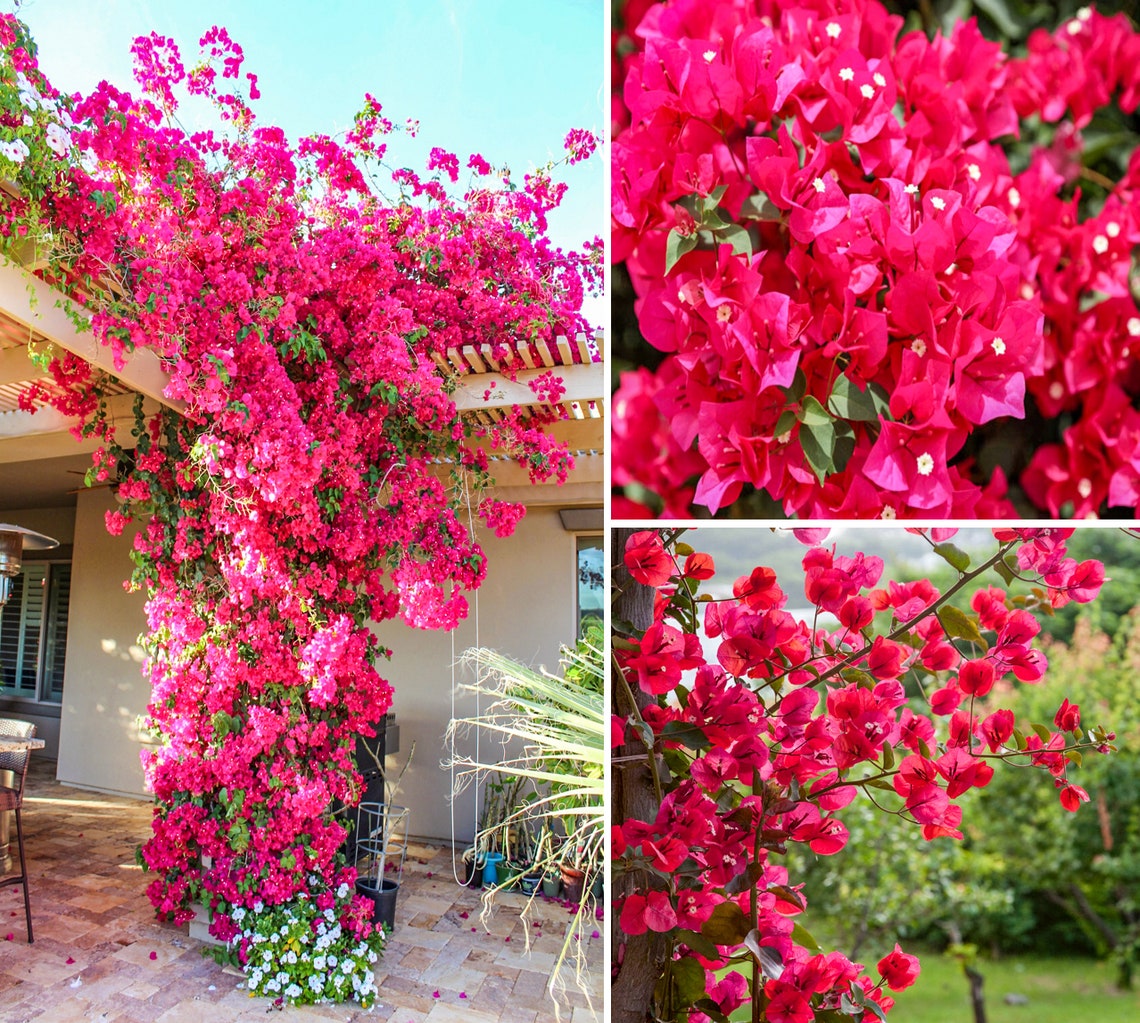Can Pets and Barbara Karst Bougainvillea Coexist Safely?
That vibrant pink Barbara Karst Bougainvillea is the perfect pop of color for your garden. But before planting this beauty, consider how it will impact your furry friends. Bougainvillea does pose some risks for pets that warrant caution. However, with thoughtful placement and training, you can help ensure your four-legged family members and this flowering vine live harmoniously.
Bougainvillea contains insoluble raphides, small needle-like crystals in the sap that can cause irritation. The main concerns for animal companions are:
-
Prick injury from thorns – Thorns can easily pierce paws or skin, inflicting painful wounds vulnerable to infection.
-
Ingestion of plant parts – Chewing leaves, vines or flowers may upset stomachs or lead to mouth inflammation or sores.
-
Contact irritation – Sap oozing from damaged areas can cause rashes if it touches skin or eyes. Most toxic if fresh.
-
Allergic reaction – Some animals may be sensitive or allergic to the plant compounds, similar to latex allergies.
Typically, serious poisoning is rare and large amounts would need to be consumed to put a pet at risk. But the plant’s prickly nature poses more of a physical hazard.
Protecting Pets from Discomfort or Injury
While Bougainvillea demands respect. there are ways to promote safe interactions
-
Train pets to avoid the plant – Use verbal corrections and reward ignoring Provide alternative scratching posts
-
Cover thorny areas – Use soft plant wraps on lower trunks and vines to prevent pokes.
-
Opt for thornless varieties – Some cultivars are less prickly by nature for lower risk.
-
Use hanging planters or raised beds – Lift vines off the ground to reduce access.
-
Place away from pet paths – Site plants away from favourite lounging or play spots.
-
Supervise during gardening – Keep pets inside when pruning or cleaning up fallen debris.
-
Remove chewed parts immediately – Prevent ingestion of plant material.
-
Keep areas weed and clutter free – Don’t give pets reason to dig or nose around plants.
When to See the Vet
Seek medical care if you notice any of the following:
- Vomiting, drooling or difficulty swallowing
- Skin rashes, welts or irritation
- Punctures or inflamed wounds from thorns
- Odd behavior indicating stomach upset
- Swollen tongue or lips indicating allergic response
Veterinary attention provides peace of mind and speeds recovery from Bougainvillea-related mishaps.
Enjoy Both Pets and Plants
With precaution, you can cultivate a safe environment where your pets and Bougainvilleas thrive together. Train animals to leave the plant alone, opt for less thorny varieties, and thoughtfully site specimens away from busy areas. Although it has potential to irritate, this beautiful blossoming vine doesn’t have to be off-limits for pet owners. A few sensible precautions go a long way in preventing problems from “thorny” situations!

Recognizing the Red Flags
Watch for drooling, pawing at the face, or a sudden lack of interest in food. These symptoms suggest oral irritation. If your cat, usually a social butterfly, becomes a recluse, its a sign that somethings off. Respiratory changes or a shift from playful to lethargic also warrant attention.
Is Barbara Karst Bougainvillea Really a Feline Foe?
The Barbara Karst Bougainvillea, a stunner in the plant world, is not listed as toxic to cats. However, its sap contains irritants that can cause reactions similar to poison oak. Thorns present a physical threat, potentially leading to injuries.
5 Must-Have Pet Friendly Indoor Plants l Easy Non-Toxic to Pets Houseplants
FAQ
Is Barbara karst Bougainvillea poisonous to dogs?
Is Bougainvillea toxic to pets?
Is the Bougainvillea plant safe for cats?
